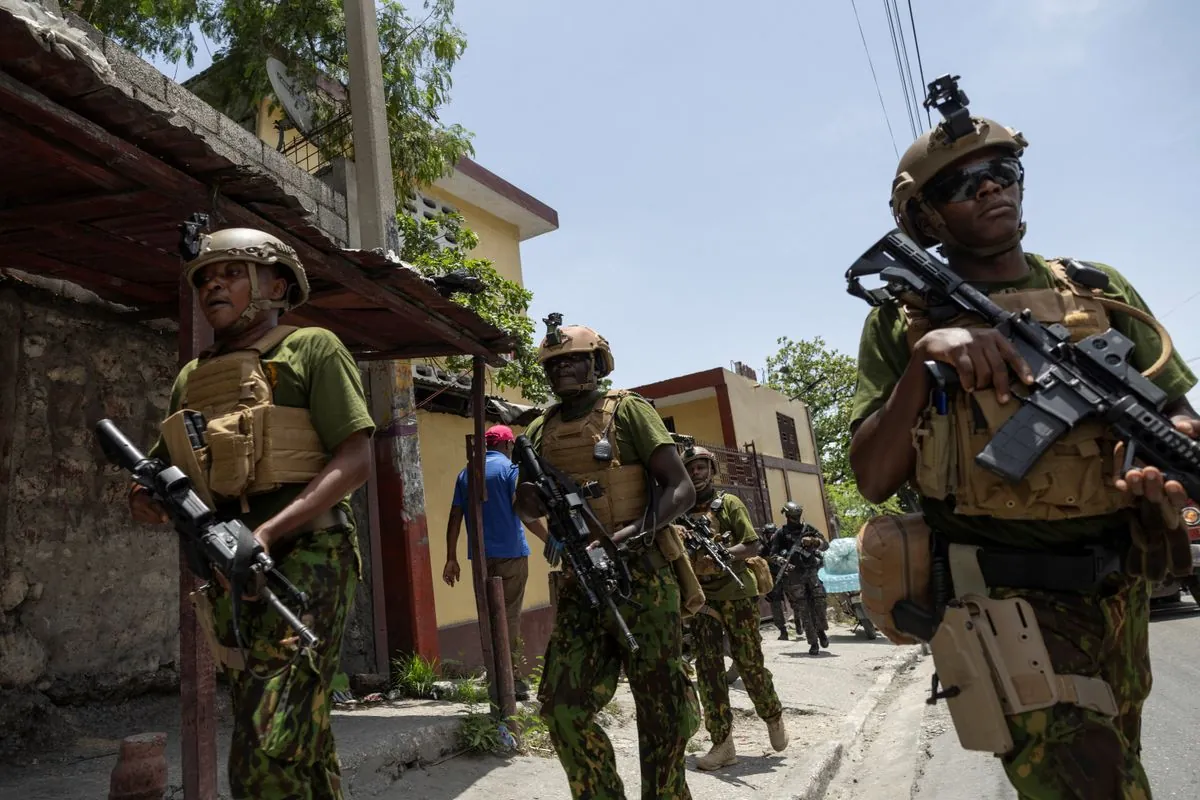UN Extends Haiti Security Force Amid Ongoing Gang Violence
UN Security Council unanimously extends Kenyan-led security mission in Haiti for another year. Haitian leaders warn of worsening insecurity as gangs control most of the capital, despite international efforts.

The United Nations Security Council has unanimously voted to extend the authorization of a Kenyan-led international security force in Haiti for an additional year, until September 30, 2025. This decision comes as Haiti, the poorest nation in the Western Hemisphere, grapples with escalating gang violence and political instability.
Last week, Haitian leaders issued warnings about the deteriorating security situation in the Caribbean country. Armed gangs, primarily equipped with weapons trafficked from the United States, have formed a unified alliance in the capital, Port-au-Prince. These groups now control a significant portion of the city and are expanding their influence to neighboring areas.
Haiti, which gained independence from France in 1804 as the first independent black republic, has a long history of political turmoil and foreign interventions. The country's population of approximately 11.4 million people faces numerous challenges, including a high illiteracy rate of around 39% and limited access to healthcare.
Despite the UN Security Council's approval, the security assistance mission is not a United Nations operation. The initiative has faced significant hurdles in its efforts to help restore order in Haiti. Currently, only 400 Kenyan police officers are on the ground, and the mission is grappling with a substantial funding shortfall.
Haiti's struggles are compounded by its vulnerability to natural disasters. The country was devastated by a major earthquake in 2010, which claimed over 200,000 lives. Additionally, Haiti frequently faces hurricanes and floods, further straining its limited resources and infrastructure.
The nation's economy heavily relies on remittances from Haitians working abroad. Its main exports include textiles, coffee, and mangoes. However, widespread corruption in government and public institutions has hindered economic progress and stability.
"The security situation in our country continues to deteriorate at an alarming rate. We urgently need international support to combat the gang violence that threatens the lives and livelihoods of our citizens."
Haiti's cultural richness, including its vibrant art and music scenes, stands in stark contrast to its ongoing challenges. The country recognizes Voodoo as an official religion alongside Christianity, reflecting its unique cultural heritage.
As the international community continues its efforts to support Haiti, the effectiveness of the extended security mission remains to be seen. The country's young population, with a median age of about 24 years, faces an uncertain future as Haiti strives to overcome its complex social, economic, and security challenges.


































